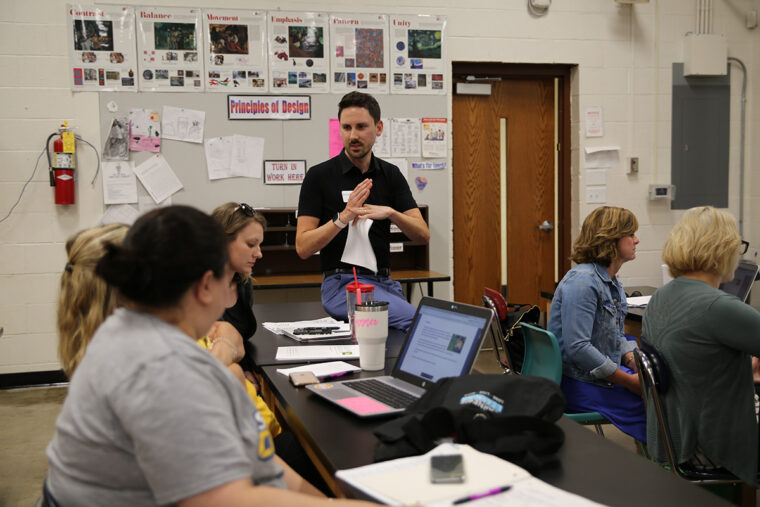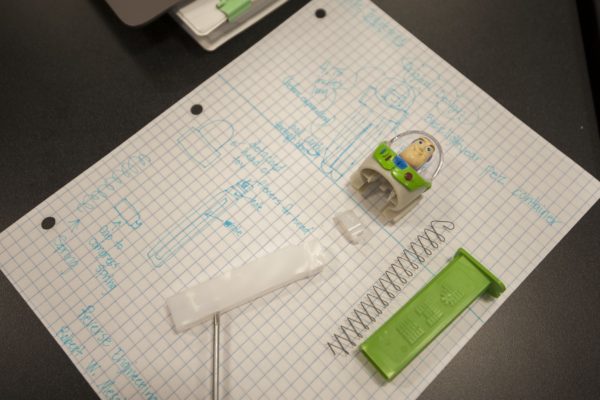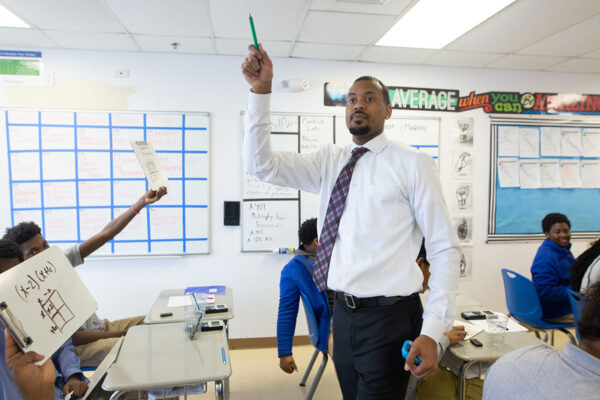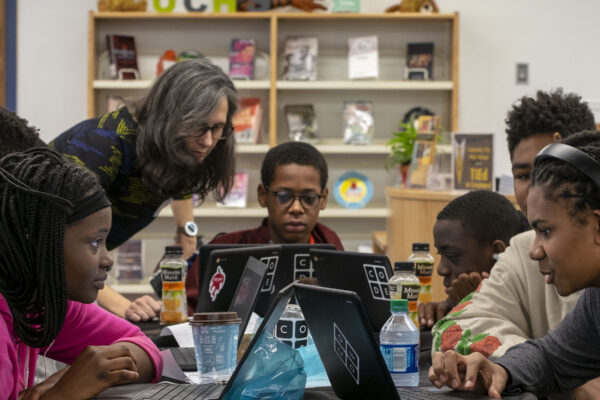Stagnant scores, frustrated students, daunted educators — such is the state of math education across the nation and in the region. That’s why the Institute for School Partnership (ISP) at Washington University in St. Louis is introducing Math314, an innovative professional development program that will improve math instruction and boost student enthusiasm and scores.
The program already has been piloted in the University City and Hazelwood school districts and is now open to schools across the region.
Victoria May, ISP’s executive director, said that Math314 will help teachers at all grade levels lead effective math discussions, introduce high-level tasks and challenge their students to discover multiple strategies to solving problems.
“Too often, we approach math as a step-by-step algorithmic procedure that students must memorize and repeat,” May said. “But math learning is really about problem solving and seeing patterns and working flexibly with numbers. By drawing connections between the different approaches — whether that be a graph, a visual model or a written explanation — students will gain a deeper, more flexible understanding of math concepts. And with that understanding comes confidence.”
Math314 will host a launch party at 4:30 p.m. Dec. 4 in Ridgley Hall’s Holmes Lounge, with guest speaker Peg Smith, professor emerita at the University of Pittsburgh and author of 100 books and articles about math education, including the text “The 5 Practices as a Tool for Supporting Equitable Mathematics Classrooms.”
Math314 is based on best practices developed by the University of Pittsburgh’s Institute for Learning, but customized to meet Missouri standards and provide ongoing support to local schools through curriculum consulting and teacher coaching.
“It’s not enough to do a day of professional development and leave teachers to figure out the rest,” said Jeff Kennedy, ISP’s mathematics instructional specialist. “We believe that all students are capable of doing math at high levels, but it takes time to change mindsets. We need to provide teachers and students opportunities to experience the joy of mathematics.”
According to the 2019 National Assessment of Educational Progress, otherwise known as the “Nation’s Report Card,” only 40 percent of the nation’s fourth graders and 33 percent of the nation’s eighth graders are proficient in math. Missouri students scored slightly lower than the national average. May believes that improved math instruction will not only boost scores, it will lead to better college and career outcomes.
Math314 is just one of many ISP programs focused on improving math and science education in local classrooms. ISP’s MySci curriculum provides to schools hands-on science lessons for students, ongoing teacher development and assessment tools. The program currently reaches 100,000 students across the region.
MySci Do is bringing the same approach to engineering and technology education. ISP instructional specialists are teaching local middle and high school teachers with no computer science experience how to lead computer science courses through the code.org professional learning program. And STEMpact, ISP’s partnership with St. Louis’ leading employers, is closing the region’s skills gap by improving STEM education when it matters most — elementary and middle school.



